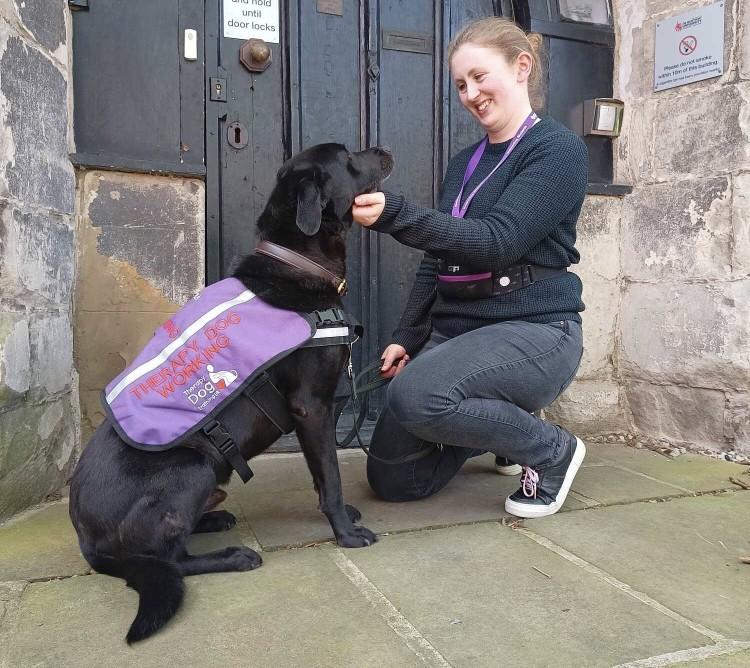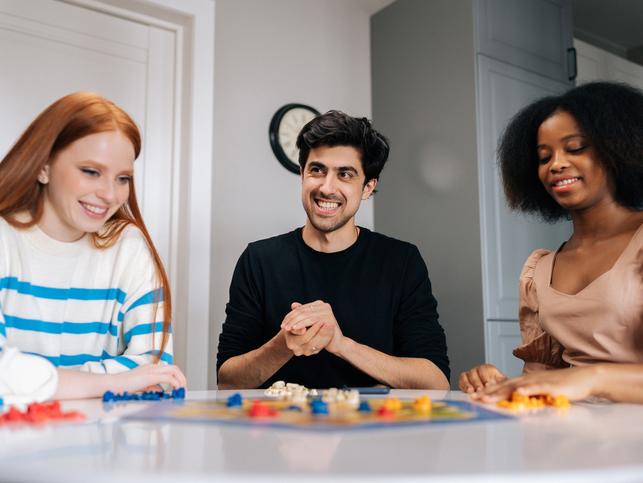Autistic students are more likely to drop out of university than any other group. Burnout, social anxiety and adapting to life on campus all contribute to the problem of retention.
Our small team – and therapy dog, Cara – supports a large population of neurodivergent students. Our mailing list reached more than 550 people last year. Since the formation of the current team in 2021, we have been expanding the number of initiatives we offer to provide tailored support throughout the student journey. With NHS waiting lists notoriously long, we extend our services to those who may be undiagnosed and require support beyond DSA-funded sessions, which can only be accessed with a formal diagnosis.
Offer timely support
Unfamiliar environments, meeting new people and living away from home can make university a minefield for autistic students. We place great importance on starting transition support early, with our “New to DMU” residential events running during the summer holidays for new students joining in October. During these two days, these students become familiar with Leicester and our campus, socialise with their peers and get to know the autism team. Some students cite these events as having helped decide their university choice, and it has been a pleasure to see friendships made here carry through their degree and beyond.
- AI as an access tool for neurodiverse and international staff
- Stop placing the onus on neurodivergent students to ‘fit in’
- On the neurodivergent campus, language matters
Running a drop-in for the first two weeks of term has also been hugely beneficial. Students call in if they feel overwhelmed, need help solving problems or just to decompress over games and crafts. Last year students made traffic light-coloured pom-poms, which they can now wear at socials to indicate how much they would like to socialise.
Equally important is the preparation for transitioning out of university. Our tailored Future Proofing sessions for final-year students help prepare them for succeeding in employment, and the challenges of adapting to living with family again, or finding new routines beyond university timetables. We have more advice on our Linktree on how we prepare these sessions.
Get tails wagging
Unquestionably, Cara is our most popular team member. His Gaelic name translates as “friend”: perfect for his role helping students struggling with missing their own pets. Since passing his assessments with Therapy Dog Training UK, he has been an invaluable conversation starter at socials, usually ending up with a group sat on the floor around him, showing each other pictures of their pets. He now attends mentoring sessions, workshops, New to DMU and open days, in addition to weekly 30-minute Therapy Dog sessions, which often act as a bridge to help students attend our other events.
Cara creates a relaxing atmosphere, which is impossible to replicate without him. We constantly get feedback on how much this reduces anxiety levels because his support is non-verbal and non-judgemental: he doesn’t ask “What’s wrong?”, just provides unconditional positive regard.

I cannot echo strongly enough our students’ appeals for “more dogs”, both at our university and yours!
Grease the social wheels
Students frequently share with us their anxieties about making friends at university. “I don’t ‘people’ very well” was a recurring worry among students that really struck me. Contrary to outdated stereotypes, our students often have high social motivation but lack self-confidence when getting to know new people. Our programme of weekly socials provides opportunities to socialise in an atmosphere embracing of neurodiversity, where students hopefully feel less need to mask.
Understanding the importance of predictability, we publish our schedule of events at the start of each term. Each social is based around a specific activity – such as mini-golf or Lego building – to provide a ready-made topic of conversation. This removes the need for small talk, which can pose a real social barrier. Consistently our most popular event is the termly quiz night – making the main challenge finding a venue to contain 40 competitive students!
Our expanding programme of events reflects the diversity of our student body, again challenging stereotypical assumptions of what autistic students might enjoy. Recently, karaoke, open mic nights and Ninja Warrior have joined the list. For others running similar events, we would wholeheartedly recommend seeking student input as running ours in this way has allowed us to see students’ confidence blossom, with one going on to run their own brilliant murder mystery social for us.
Yeilani Carter is one of our alumni who flourished through accessing our support. Having made a close friend through New to DMU, she thrived at the socials, serenading everyone with JLS during karaoke and winning our quizzes! Excitingly, she is now returning to work with us as an autism study assistant, along with some of our other recent graduates, supporting current autistic students to access their classes.
With autism awareness rising, many students come to us lacking information about recent diagnoses. Some also have a complicated relationship with their autism, which they may not be keen to embrace. To support with this, we run a termly book club where we select a work by an autistic author and invite students to read some or all of it before coming together to discuss its themes and share experiences of neurodivergent life.
Similarly, while our energy accounting workshops teach practical skills for avoiding burnout, they became an environment in which students shared stories and resources with each other, leading to demand for future workshops on topics including masking. Thanks to the East Midlands Railway Community Fund, we are currently in the exciting process of planning a series of speaker events on the themes of autistic identity, self-acceptance and the world of work with speakers who have previously presented at The Autism Show.
With misinformation and damaging rhetoric about autism increasingly circulated from certain political quarters, we are proud to be creating a space where students can feel safe and supported to explore and embrace autistic identity.
Tabitha Biller is specialist autism mentor at De Montfort University.
De Montfort University was shortlisted in the Outstanding Student Support category in the Times Higher Education Awards 2025. The full list of nominees can be found here.
If you would like advice and insight from academics and university staff delivered direct to your inbox each week, sign up for the Campus newsletter.




comment